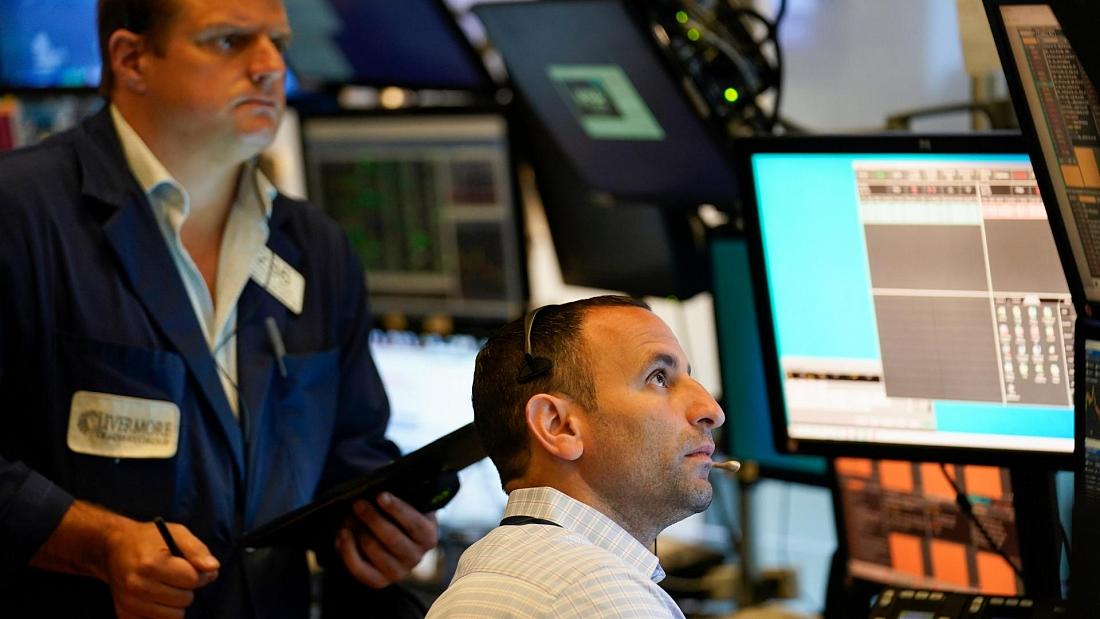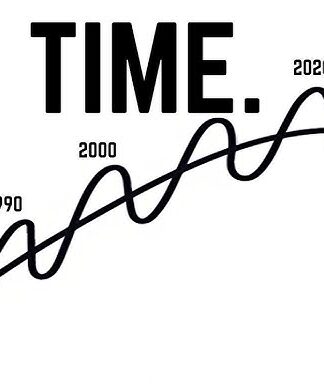What is a bear market and should we be worried about a global recession? We ask the experts
Major economies are also slipping into a bear market due to supply chain disruption and the energy crisis.
Major economies are also slipping into a bear market due to supply chain disruption and the energy crisis. – Copyright AP
By Jack Ramage • Updated: 17/06/2022
As the threat of growing inflation and higher interest rates is building on investors, Wall Street has fallen into a bear market.
Interest rates have been pushed up by the US Federal Reserve bank as it struggles to curb the highest rates of inflation the US has seen in decades.
It’s a scene playing out not just in the US but across the globe.
Major economies are also slipping into a bear market due to the “perfect storm combining supply chain disruption due to Covid-19 and food and energy crisis triggered by Ukraine war, with Fed tightened monetary policies and investor panic risk-off mode under this extreme uncertain environment,” Xiaoxiang Zhang, a senior lecturer in finance at the University of Sussex, told Euronews Next.
But what is a bear market, how long does it last and what does it actually mean?
What is a bear market?
“Generally speaking a bear market is any sustained period of price decline in any market,” Sean Pinch, an Investment Analyst at iSectors, told Euronews Next.
He noted that pinning down an exact definition of the term is actually “sort of up for debate”.
COVID created a new billionaire every 30 hours while many face extreme poverty, report says
“A lot of people call a bear market any sustained period of price decline in the market,” he said.
“A more specific definition is that a bear market exists when a market has dropped in price by over 20 per cent from a recent high. As of this moment, the S&P 500 is down 22.57 per cent from its most recent high of 4818.62”.
A bull market, on the other hand, refers to a sustained period of price rise in any market.
Where does the name bear market come from?
At first glance, the bear market and its antonym, the bull market, seem to be names that are out of place in the world of economics.
So, where did the terminology come from? According to Pinch, pinning down an exact answer can be tricky as “people don’t fully know the origin of these terms”.
“I have heard that it originates from the bear skin trade in North America, where traders would speculate on the prices of the bear skins,” he noted.
Others believe the name originated in Italy and France “where a proverb warned people not to sell the bear skin until they had caught the bear,” Naoshad Pochkhanawala, a financial planner at Amiko Benefits, told Euronews Next.
“It seems the warning of bad fortune somehow made its way to Wall Street — with traders afraid of losing their shirts to the bear”.
This is contradictory to investment and financial news site Investopedia, which claims that the term bear market refers to “the way in which a bear attacks its prey —swiping its paws downward. This is why markets with falling stock prices are called bear markets”.
Record inflation: Which country in Europe has been worst hit and how do they compare?
How bad is the bear market?
“[The current state of the market is] certainly not looking great,” Pinch remarked.
The current state of the economy is exasperated by rising inflation, supply chain issues, he said, and the search for sustainable economic growth as we head out of the pandemic era.
“It is a combination of factors which has created this not ideal situation. It is very difficult, perhaps impossible, to judge exactly how bad the situation is. Central banks around the world are doing their best to make sure everyone comes out alright”.
Are investors worried?
“Investors are definitely worried — I don’t know how many exactly, but I’d guess many are,” Pinch said, drawing attention to a recent consumer sentiment number released by the University of Michigan which predicts changes in economic activity based on how likely consumers are to buy things.
“It was one of the lowest in something like 80 years,” he added.
“Year over year, inflation is 8.6 per cent right now — and it doesn’t seem to be cooling down in the United States or anywhere else. So investors are certainly worried”.
But what will it mean for investors?
“To those who bought high, it means they’re losing money. To those who bought in a long time ago, they now have a little less money,” Holmes Osbourne, Principal at Osbourne Global Investors, told Euronews.
“To those who own no stocks, it probably helps them if prices are lower. Unless the company they work for is publicly traded and management is cutting back on costs and labour,” he argued.
Has there been worse bear markets than this?
There have certainly been economic crises larger than the state of the market right now, which caused an incredible amount of financial turmoil.
However, Pinch notes, we should be wary as “we don’t know the full extent of this bear market yet”.
“It could certainly turn into something that is worse than what it is right now. Probably not to the level of the Great Depression, but it could turn into something that is worse than the Great Recession”.
So, are we in a recession? “Not literally in a recession, as of yet,” Pinch said. “Generally speaking, most countries are not in a recession, as far as I know”.
‘Crypto winter’ freezes hiring at Gemini and Coinbase after Terra crash and Bitcoin slump
“A recession is defined as two successive quarters — six months — of GDP growth declines and negative gross domestic product. We are certainly heading in that direction so perhaps we might be soon,” he added.
“Bear markets & recessions go hand in hand, one usually feeding the other,” Pochkhanawala added. “As inflation and interest rates rise people have less discretionary income and pay less for luxuries and conveniences so businesses expect to earn less in the future”.
How long do bear markets last? Will this end soon?
It’s difficult to predict how long this bear market will last as economic trends seem to vary widely.
Some bear markets like the crash in 2020 – which was precipitated by the beginning of the COVID-19 pandemic – can be very short-lived. Other bear markets can be severe and prolonged.
“Ultimately the simplest definition of a recession is that there is a shortage of products, services or money in the economy — a bear market is a symptom of that,” Pochkhanawala added.
He draws attention to how bear markets can often cause a snowball effect into a recession. “Shortage of products leads to fewer profits, which leads to less money spent, which leads to lower profits. This, in turn, causes less investment which causes more product shortages”.
However, it’s important to note that with every circumstance there are many different economic pressures to consider — “making it difficult to judge” how this might play out, Pinch added.
“The dot-com bubble crash went on longer than the 2020 crash, the Great Recession went on longer than that. It really depends on what’s going on in the economy and how many pressures there are”.






























